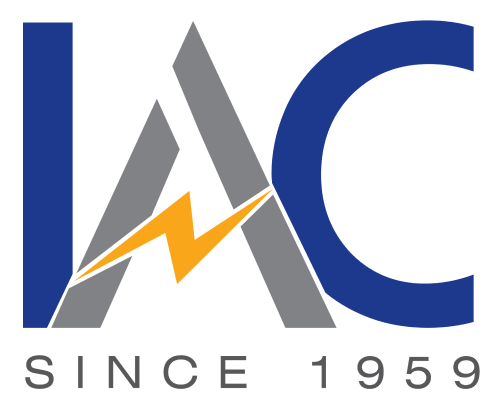Power distribution plays a vital role in our society. Aerial Bundled Cables (AB Cables) are integral to this system. It offers numerous advantages over traditional overhead lines. Proper installation methods are essential to ensure AB cable accessories perform efficiently, reliably, and last long.
This blog will explore the best practices for AB cable fittings and the key factors required for a successful AB cable installation.
What is AB Cable(Aerial Bundled Cables) and Its Importance
AB Cable isn’t just any cable but a vital power lifeline. With enhanced safety, greater reliability, and minimized voltage drops compared to conventional overhead lines, its advantages are evident. Nonetheless, installing AB Cable demands meticulous attention to detail and precise implementation.
AB cable accessories are crucial for the reliable performance and longevity of the cable system. They provide essential support, secure terminations, and effective strain relief, preventing mechanical stress and electrical failures. Additionally, accessories like vibration dampers enhance durability in challenging environments, ensuring consistent power distribution and reducing maintenance needs, thus safeguarding the overall system integrity. Let’s delve into these best practices.
Planning and Design:
Before you start fitting AB Cable, you should require detailed planning and design. However, a site survey is crucial to evaluate environmental conditions and establish the cable path. Selecting the appropriate cable size, configuration, and accessories is essential, and all decisions must adhere to local codes, regulations, and standards.
Tower and Pole Installation:
The stability of an AB Cable fittings heavily relies on the strength of the towers or poles it is mounted on. Consequently, it is essential to ensure these structures are stable, structurally sound, and properly grounded. Towers must be appropriately spaced and positioned to handle cable sag and expansion. Proper cable attachment involves the correct use of clamps, brackets, and other hardware.
Cable Preparation:
Properly preparing AB Cable accessories is crucial and involves inspecting the cables for any visible defects or damages. This step is essential for identifying any issues. The cable’s surface must be cleaned to remove debris, moisture, or contaminants. Additionally, suitable jointing kits, connectors, and protective measures should be used.
Tips when You Install AB Cable Accessories
Proper installation techniques are crucial for ensuring the longevity of the AB Cable system. Here are some key pointers to consider:
1.Careful Handling: AB Cables should be handled with care to avoid kinks, twists, or damage to the insulation. Use appropriate lifting and support mechanisms to prevent excessive bending or stress on the cables.
2. Tension Control: During the stringing or pulling process, control the tension within the manufacturer’s recommended limits. Excessive tension can damage the cable or cause elongation, while insufficient tension can lead to sagging or inadequate clearance distances.
3. Alignment and Sag: Maintain proper alignment and sag between the cables. Sag accommodates thermal expansion and contraction and prevents excessive strain on the cable due to temperature changes. Determine sag values based on cable specifications and environmental conditions.
4. Clearance Distances: Ensure adequate clearance between the cables and obstacles such as trees, buildings, or other power lines. Adhere to regulatory requirements and safety standards to prevent short circuits or physical damage.
5. Anchoring: Anchoring points like poles or towers should provide stable support, with adequate strength and grounding to withstand external forces like wind, ice, or mechanical stress.
6. Termination: Properly terminate the cables at connection points, ensuring secure connections, proper insulation, electrical conductivity, and moisture protection.
7. Strain Relief: Use strain relief measures, such as clamps or brackets, to support the cable weight and minimize mechanical stress. Strain can prevent excessive tension and also help to maintain the integrity of cable connections.
8. Vibration Damping: In areas with high wind or vibration, use vibration dampers or similar devices to reduce the impact of vibrations on the cables, enhancing their longevity and minimizing fatigue.
9. Cable Winching and Suspension: Once AB Cables are anchored or suspended from the pole, they should not be subjected to additional pulling or tension. Instead, lay the cable along the ground and winch it up simultaneously for suspension.
10. Laying Along the Ground: Before suspension, carefully lay the cable along the ground in a straight, untwisted manner to prevent undue stress during winching and suspension.
11. Simultaneous Winching: Gradually winch up the cable, maintaining even tension along its length. This ensures controlled and uniform elevation, minimizing the risk of damage or excessive strain on the suspension clamps.
12. Load Distribution: Winch up the cable gradually and evenly to distribute the weight across its entire length, ensuring no single suspension clamp bears an excessive load, reducing the risk of clamp failure or deformation.
13. Avoiding Excessive Tension: Avoid applying excessive tension during winching and suspension, as over-tensioning can damage the cable, compromise electrical performance, or lead to premature failure. Ensure the tension is within the manufacturer’s recommended limits.
Final Words
If you follow the best practices for cable winching and suspension, such as laying cables along the ground and evenly distributing load during winching. It helps prevent damage and extends the lifespan of the system.
By meticulously implementing these guidelines, the durability and effectiveness of AB Cable systems can be significantly enhanced, ensuring safe and efficient power distribution. For further guidance, you can contact IAC Electricals, one of the leading transmission line hardware manufacturing companies in India. We will work closely with your business for better results.






